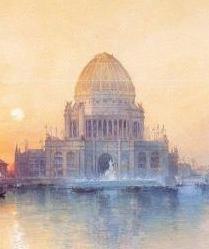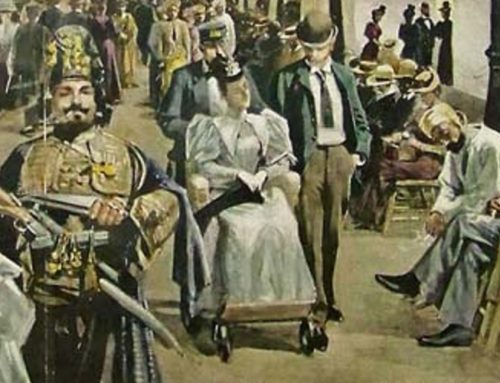The American labor movement and the 1893 World’s Columbian Exposition share an intertwined history. Labor Day became an official U.S. federal holiday in 1894. The official histories of the World’s Fair rarely recognize the back-breaking labor of the working class and largely immigrant labor force that carved the lagoon, constructed the White City, operated the concessions.
The following article from the August 16, 1893 issue of the Chicago Inter Ocean, describes one instance of labor unrest at the Fair involving the college students who came to Chicago from across the country to serve as “rolling-chair boys” on the fairgrounds.
WON’T STAND THE REDUCTION
Chair-pushers Will Not Work for Less than a Dollar a Day
Two hundred chair-pushers who are striking against the reduction in salaries made by the Columbian Rolling chair company met on the south pier at 2 o’clock yesterday afternoon to protest against the action of their employers, hear reports of committees, and decide what course of action was best to pursue.
A walking delegate who hails from Rochester, N. Y., acted as chairman, and a committee reported that it had called on President Higinbotham and Director General Davis, and that both of those gentlemen sympathized with them and stated that they thought the rolling-chair company had violated its contracts with the boys in reducing their pay from $1 to 75 cents a day, and that President Higinbotham had promised to consult with Mr. Adams, the manager of the company.
Two other committees were appointed one to again confer with President Higinbotham, and one to consult a lawyer. The boys state that they were hired under contract for six months. They expressed a determination to stick together until the last, and one, a colored boy, said that the person who took his pass and badge away from him would have to “lick” him first.

Portion of “The Midway Plaisance at Night” by Thure De Thulstrup for Harper’s Weekly, showing a rolling-chair boy and his patron.





Leave A Comment